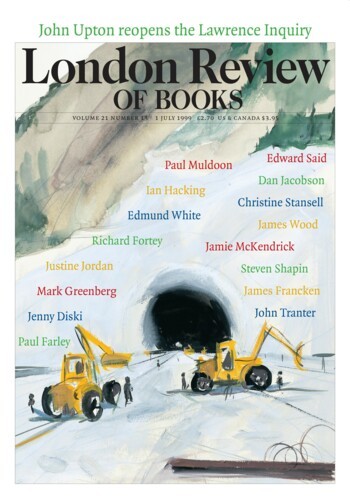Mark Greenberg
Mark Greenberg is Deputy Assistant Attorney General in the US Department of Justice. In the academic year that has just ended he was a member of the philosophy and law faculties at Oxford
Apocalypse Not Just Now: the doomsday argument
Mark Greenberg, 1 July 1999
John Leslie comes to tell us that the end of the world is closer than we think. His book is no ordinary millennial manifesto, however. Leslie is a sophisticated philosopher of science, and the source of his message is not divine revelation, apocalyptic fantasy or anxiety about the year-2000 computer problem, but ‘the Doomsday Argument’ – an a priori argument that seeks support in probability theory. In fact, the most interesting questions The End of the World raises are not, despite its subtitle, about our eventual demise. Rather, they concern our susceptibility, when thinking about risk, uncertainty and probability, to a kind of cognitive illusion. The Doomsday Argument is a case-study in ‘probabilistic illusion’, for it rests on a web of insidious intuitions, hidden assumptions and seductive but imprecise analogies.’‘
Read anywhere with the London Review of Books app, available now from the App Store for Apple devices, Google Play for Android devices and Amazon for your Kindle Fire.
Sign up to our newsletter
For highlights from the latest issue, our archive and the blog, as well as news, events and exclusive promotions.

